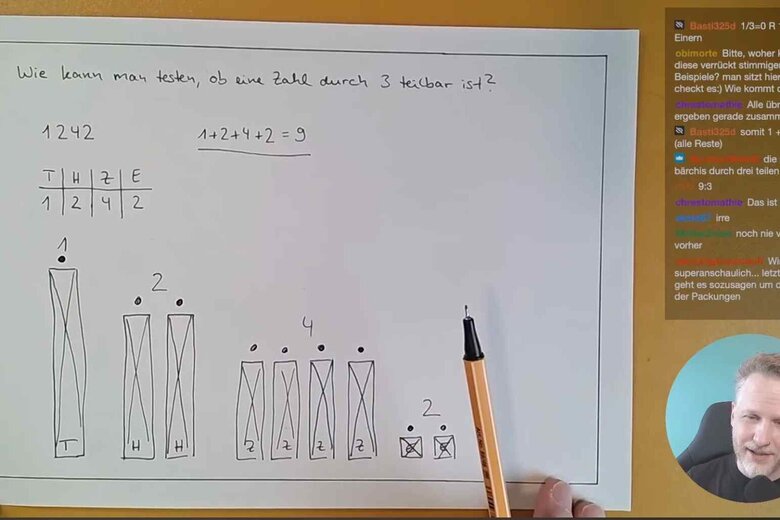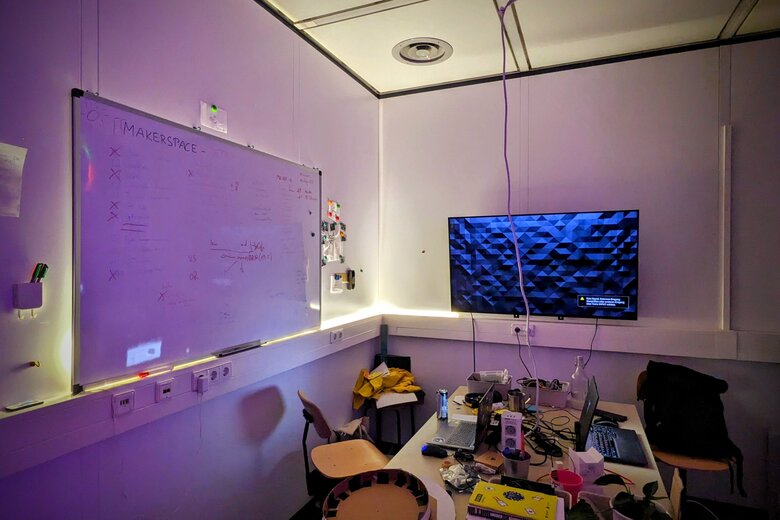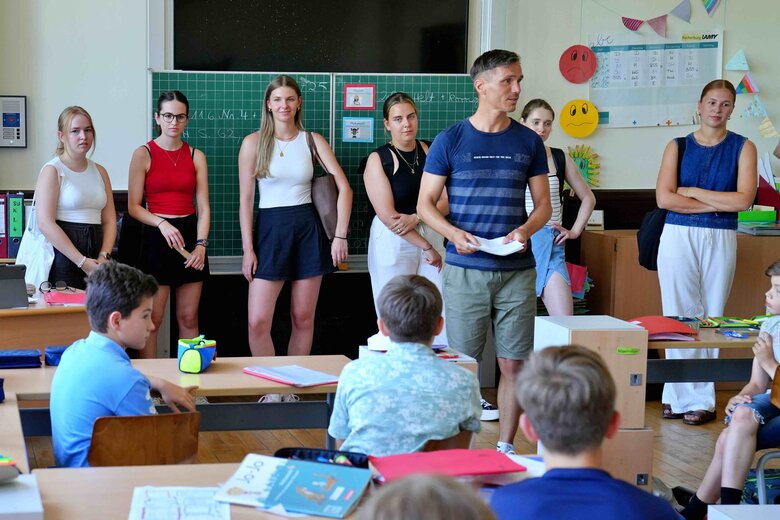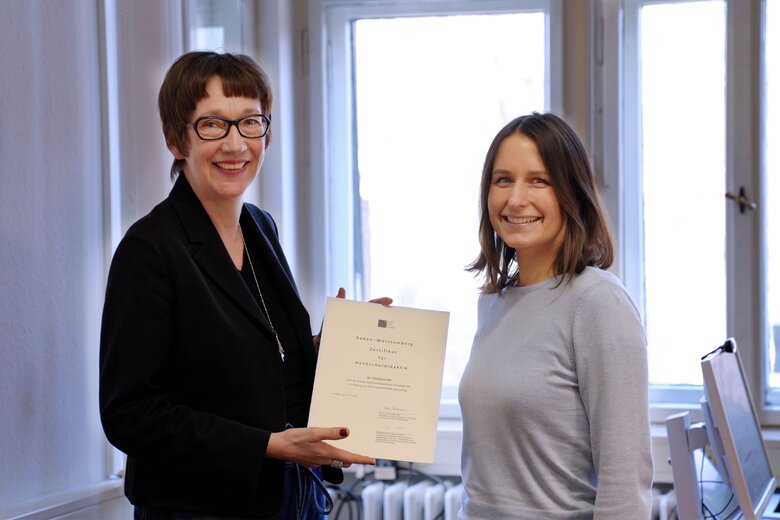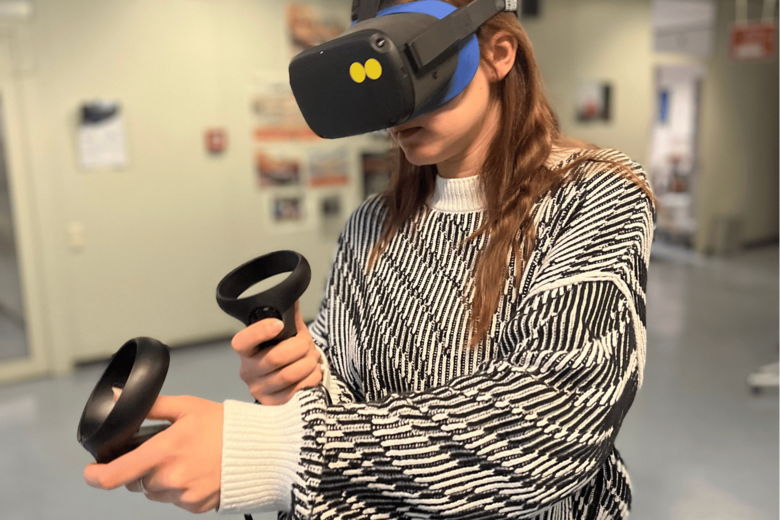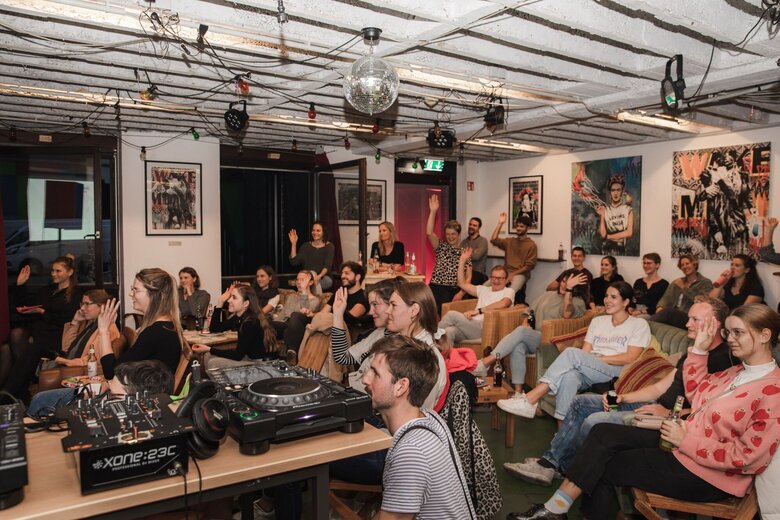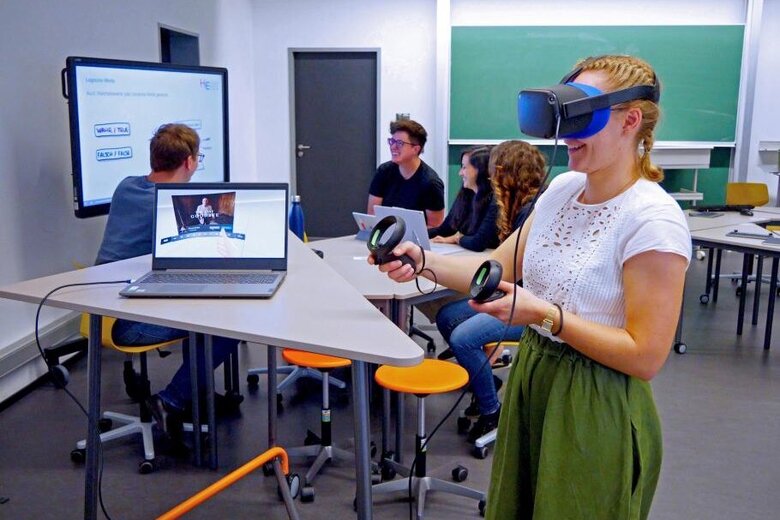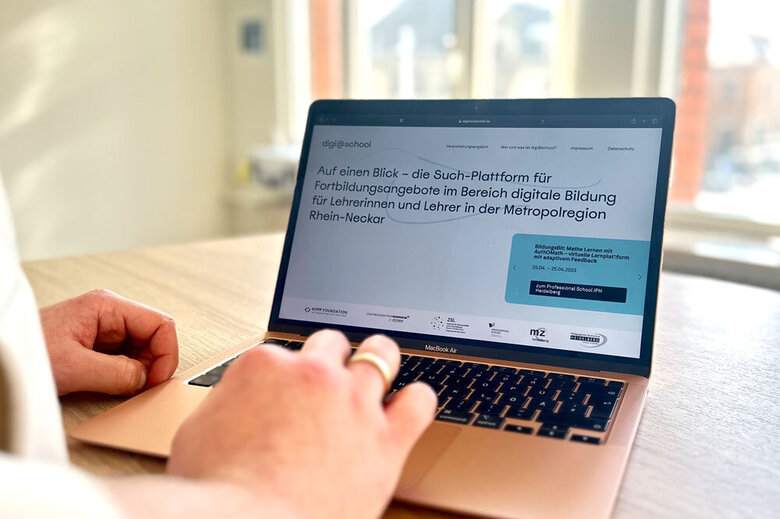We create learning spaces in which students can try out digital media in practice and use them in a didactically reflective way. Our student teachers in particular benefit from this: they are given the opportunity to practise using digital tools at an early stage and learn how to use them profitably in the classroom later on.
How do you learn maths if you want to remain flexible in terms of time but still don't want to be alone? This is exactly what Dr Christian Spannagel, Professor of Mathematics, is working on in his project "Freiraum 2025 - HyFlexMath". Together with his team, he wants to develop a learning environment that adapts to learners' everyday lives. Primary school teaching students will be directly involved in the development. The project also incorporates the experience gained from the "True Math" series of events: Here, Spannagel solves maths problems in a live stream and in interaction with participants. The series has met with great interest, with videos on the series having been viewed a total of 2.5 million times on social media to date.
Our Makerspace is a creative and inspiring place for student teachers and Master's students in the field of e-learning and media education. It is the ideal space to gain practical experience in the fields of robotics, 3D printing and construction. As part of Maker Education, the Media Education team offers students the opportunity to learn, experiment and exchange ideas with other students and teachers in an interdisciplinary environment.
Learn more
Digital media are an integral part of our lives. Their use is now anchored in the curriculum and should be integrated into lessons from primary school onwards. After all, the youngest children in particular are growing up in a world characterised by digitalisation and should at least learn how to use iPads, apps and the like safely. In Dr Jens Dennhard's seminar "Digital media in maths lessons", students therefore practise block-based programming with primary school pupils.
German lecturer Dr Christina Bär has successfully completed further training and obtained the "Baden-Württemberg Certificate for University Didactics". This gave Bär the opportunity to develop and implement a new seminar concept for digital teaching and learning. She is now implementing the new seminar concept based on the "inverted classroom" method in the course "Linguistic Foundations of German Lessons" in basic German education.
All Bachelor's teacher training students at our university must take a basic module on media education under the motto "Digital skills for everyone!". Here they learn how to use digital media in the classroom in a meaningful way. The module also prepares prospective teachers to address cross-cutting topics such as the role of digital media for social cohesion in the classroom. The Stifterverband has awarded Dr Annette Schulze and Holger Meeh the University Pearl of the Month for August 2024 for firmly anchoring media education in teacher training.
The moon landing was just a big staging. The COVID-19 virus was deliberately released. Refugees are all criminals anyway. And queer people want to destroy the traditional family. There are many conspiracy myths. They offer simple explanations for complex problems and resist rational arguments, which makes them particularly persistent and difficult to refute. The project "Journalistic and cross-media skills development for students" by Prof Dr Marco Kalz and team has developed teaching and learning materials that strengthen news and information skills.
dactylos "Rethinking education" (2024, p. 26/27)
Digital teaching and learning is one of the fundamental aspects of contemporary teacher education. With the "HSE Digital Teaching and Learning Lab", we - Heidelberg University and Heidelberg University of Education - are giving space to this central topic in several ways: as a network of modern premises with state-of-the-art media technology equipment, the lab invites lecturers in teacher training subjects to familiarise themselves with innovative didactic methods and technologies and use them for their own teaching; at the same time, it offers a point of contact for related institutions at the university and PHHD and provides impetus for exchange in research, teaching, innovation and transfer.
Learners may have a variety of questions: some finish their tasks quickly and without errors. Others have realised that some of their solutions are incorrect: What kind of mistakes did they make? And yet another group was unable to follow the careful introduction to the topic and struggled to find a solution at all. It is almost impossible for a single teacher to fulfil all these questions, needs and requirements. The use of digital learning materials can help here. Prof Dr Guido Pinkernell shows exactly how.
dactylos "Media education" (2023, p. 28/29)
The digi@school network, to which our university also belongs, bundles its training and further education programmes in the field of digital education: teachers from all types of schools can access an overview of the relevant courses on the "www.digiatschool4all.de" platform. The platform is primarily aimed at teachers from the Rhine-Neckar metropolitan region; selected courses can also be attended by teachers from all over Germany.
